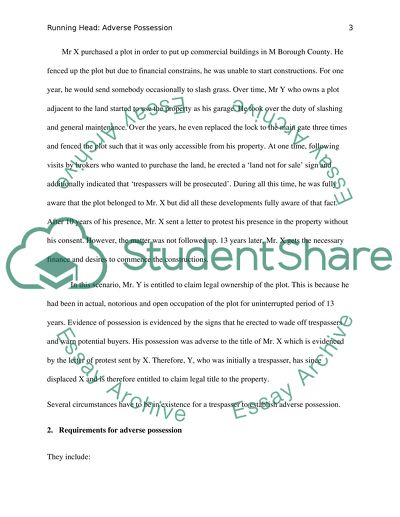Cite this document
(“Adverse possession Essay Example | Topics and Well Written Essays - 1500 words”, n.d.)
Retrieved from https://studentshare.org/law/1491476-adverse-possession
Retrieved from https://studentshare.org/law/1491476-adverse-possession
(Adverse Possession Essay Example | Topics and Well Written Essays - 1500 Words)
https://studentshare.org/law/1491476-adverse-possession.
https://studentshare.org/law/1491476-adverse-possession.
“Adverse Possession Essay Example | Topics and Well Written Essays - 1500 Words”, n.d. https://studentshare.org/law/1491476-adverse-possession.


